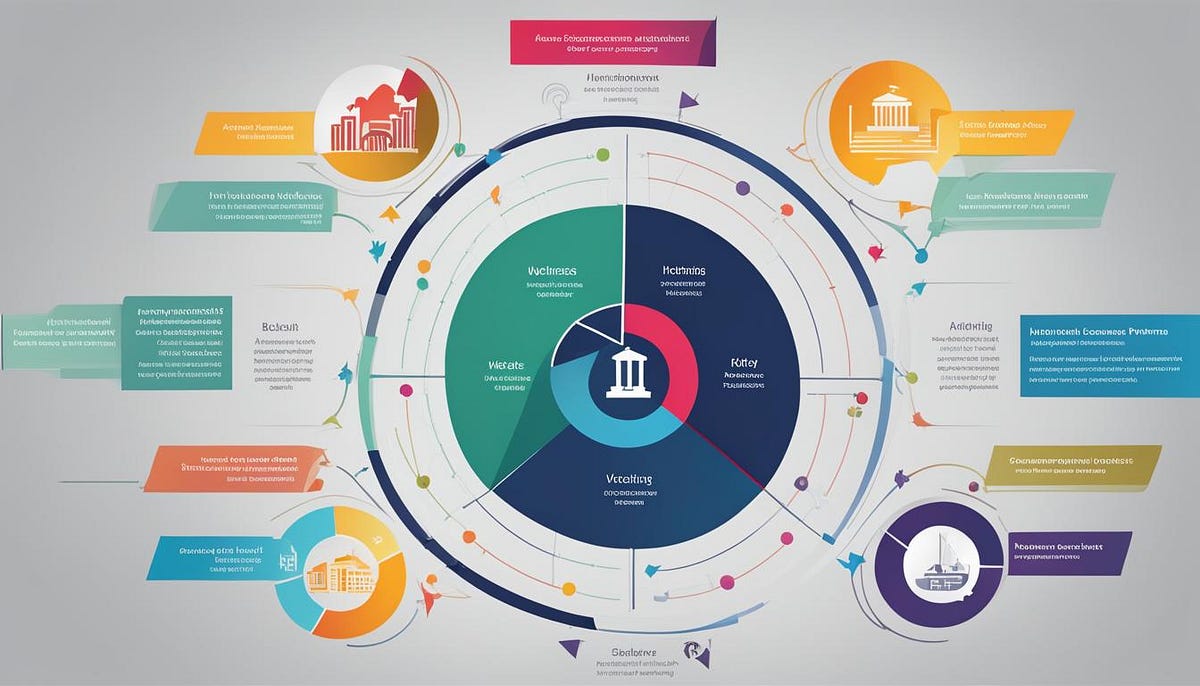In the pursuit of financial well-being, individuals often compartmentalize personal and business finances, treating them as separate entities. However, the concept of holistic financial planning encourages the integration of personal and business goals to achieve a harmonious balance and optimize overall financial health. In this blog post, we’ll explore the importance of integrating personal and business goals in financial planning, the benefits it offers, and key strategies for achieving alignment and synergy between the two domains.
Recognizing the interconnectedness
Holistic financial planning acknowledges the interconnectedness of personal and business finances, recognizing that decisions made in one area can impact the other. For entrepreneurs and business owners, the lines between personal and business finances often blur, as personal assets may be invested in the business, and business profits may fund personal goals. By taking a holistic approach, individuals can align their financial decisions with their overarching objectives, whether they relate to retirement planning, wealth accumulation, business growth, or legacy planning.
Benefits of integration
Clarity and focus: integrating personal and business goals provides clarity and focus, enabling individuals to prioritize their objectives and allocate resources effectively. By understanding how personal and business finances intersect, individuals can make informed decisions that support their long-term vision and values.
Efficiency and optimization: holistic financial planning promotes efficiency and optimization by eliminating redundancies and leveraging synergies between personal and business finances. By aligning investment strategies, tax planning, and risk management efforts, individuals can maximize returns and minimize costs across both domains.
Risk mitigation: integrating personal and business finances allows for better risk mitigation strategies. By diversifying assets and income streams, individuals can protect themselves against unforeseen events such as economic downturns, business setbacks, or personal emergencies, reducing overall financial risk.
Long-term sustainability: a holistic approach to financial planning promotes long-term sustainability and resilience. By balancing short-term needs with long-term goals, individuals can build a solid foundation for financial security, both personally and professionally, ensuring sustainability for themselves and their businesses over time.
Strategies for integration
Goal setting and prioritization: begin by identifying and prioritizing both personal and business goals. Consider short-term objectives such as debt repayment or business expansion, as well as long-term aspirations such as retirement planning or succession planning.
Financial assessment and analysis: conduct a comprehensive assessment of both personal and business finances, including income, expenses, assets, liabilities, and cash flow. Analyze the financial health of both domains to identify areas of strength and areas for improvement.
Alignment of strategies: align investment strategies, tax planning, and risk management efforts to support both personal and business objectives. Consider how decisions made in one area may impact the other and seek opportunities for synergy and alignment.
Regular review and adjustments: holistic financial planning is an ongoing process that requires regular review and adjustments. Monitor progress towards goals, evaluate the effectiveness of strategies, and make necessary changes as circumstances evolve or goals shift over time.
Conclusion: achieving balance and harmony
In conclusion, holistic financial planning is about achieving balance and harmony between personal and business goals, recognizing the interconnectedness of both domains. By integrating personal and business finances, individuals can gain clarity, efficiency, and resilience in their financial journey. By aligning strategies, prioritizing objectives, and fostering synergy between the two areas, individuals can optimize overall financial health and work towards a future that is both prosperous and fulfilling, both personally and professionally.

